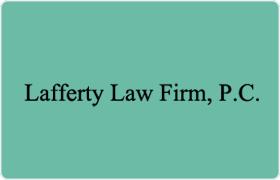Antioch Credit & Debt Lawyer, Tennessee
Sponsored Law Firm
-
 x
x

Click For More Info:
-
Lafferty Law Firm, P.C.
1321 Murfreesboro Pike Suite 521 Nashville, TN 37217» view mapBankruptcy & Debt Over 30 Years Of Experience
Susan S. Lafferty is a CPA and Attorney who enjoys helping people with financial problems. She is located in Nashville, TN where she has lived for over 30 years.
800-936-9071
Tameka Smith
Business & Trade, Construction, Corporate, Credit & Debt
Status: In Good Standing Licensed: 24 Years
Justin Seamon
Administrative Law, Federal Appellate Practice, Business & Trade, Credit & Debt
Status: In Good Standing Licensed: 15 Years
John Teitenberg
Bankruptcy, Banking & Finance, Construction, Credit & Debt
Status: In Good Standing Licensed: 27 Years
 Susan Lafferty Nashville, TN
Susan Lafferty Nashville, TN Practice AreasExpertise
Practice AreasExpertise
